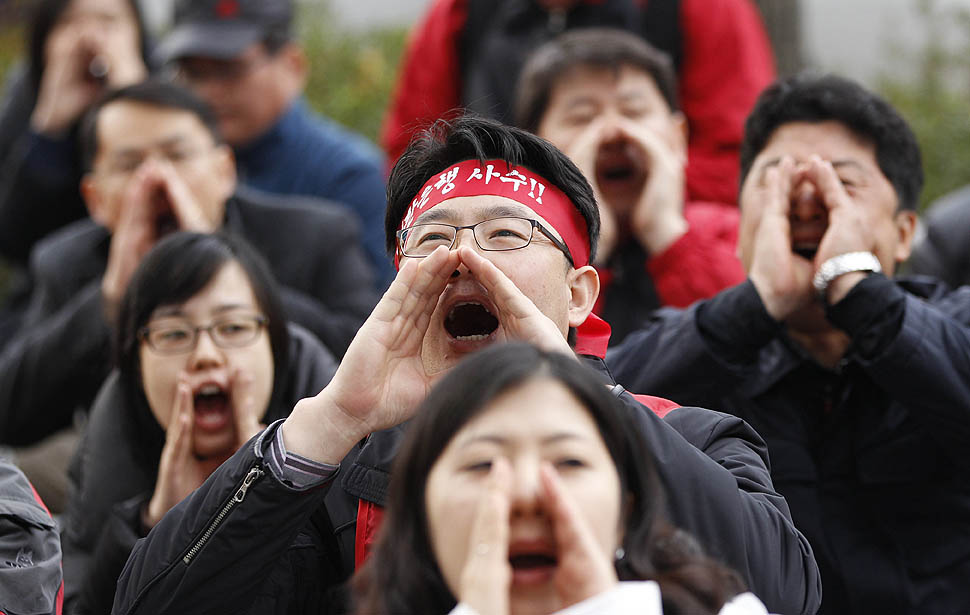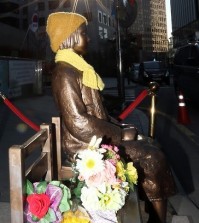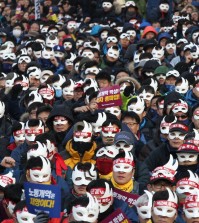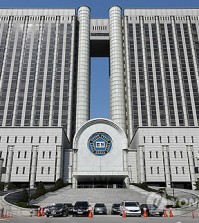- California Assembly OKs highest minimum wage in nation
- S. Korea unveils first graphic cigarette warnings
- US joins with South Korea, Japan in bid to deter North Korea
- LPGA golfer Chun In-gee finally back in action
- S. Korea won’t be top seed in final World Cup qualification round
- US men’s soccer misses 2nd straight Olympics
- US back on track in qualifying with 4-0 win over Guatemala
- High-intensity workout injuries spawn cottage industry
- CDC expands range of Zika mosquitoes into parts of Northeast
- Who knew? ‘The Walking Dead’ is helping families connect
[WSJ] Lone Star Case Revives Questions About Investment in Korea

Union members of Korea Exchange Bank shout slogans during a rally in front of Financial Services Commission in Seoul, South Korea, Friday, Nov. 18, 2011. The Korean read “Defend, Foreign Exchange Bank.” (AP Photo/Lee Jin-man)
[THE WALL STREET JOURNAL] – One of the most closely scrutinized corporate deals in South Korea’s recent history is heading into overtime, resurrecting questions about the country’s openness to foreign investment.
Arbitration between Dallas-based Lone Star Funds and the South Korean government begins Friday in Washington under the auspices of the World Bank. It is an epilogue to a decade long sale dispute that also raised concerns about Seoul’s openness to private-equity deals.
At stake is $4.6 billion in taxes and lost profit that the U.S. private-equity company says the South Korean government cost it when Lone Star’s sale of its stake in Korea Exchange Bank in 2008 was held up by legal challenges including a court case over alleged stock-price manipulation.
In 2008, the former head of Lone Star’s South Korea unit was sentenced to three years in prison for stock-price manipulation in a separate deal related to KEB.
The government has denied allegations it acted improperly, and says it doesn’t discriminate against foreign investors.
The arbitration also refocuses attention on what South Korea has done in recent years to regain its appeal as a destination for foreign capital that was tarnished during Lone Star’s years long attempt to sell KEB. [READ MORE]












![일본 사도광산 [서경덕 교수 제공. 재판매 및 DB 금지]](http://www.koreatimesus.com/wp-content/uploads/2024/07/PYH2024072610800050400_P4-copy-120x134.jpg)


